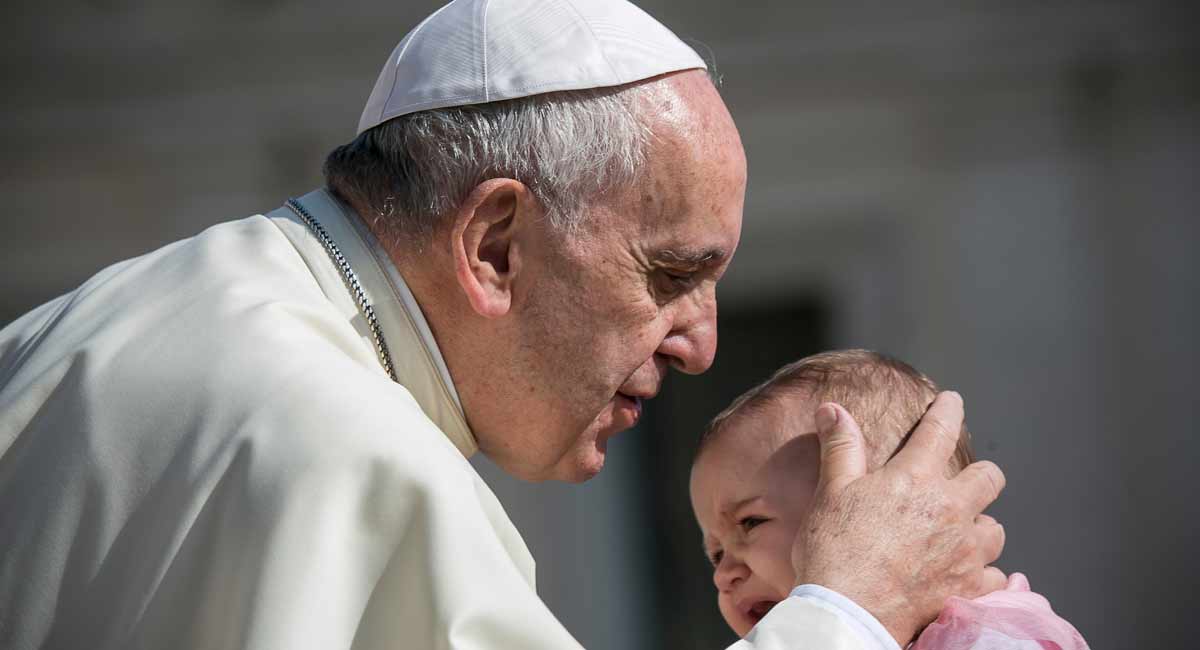In an interview with America Magazine, Pope Francis has again spoken out against abortion. During the interview, published on November 28, he referred to abortion as a “crime” and noted that the church should not be treating it as a political issue.
“[L]et no one hijack this truth, which is universal. It does not belong to one party or another. It is universal,” he said. “When I see a problem like [abortion], which is a crime, become strongly, intensely political, there is a failure of pastoral care in approaching this problem. Whether in this question of abortion or in other problems, one cannot lose sight of the pastoral dimension: A bishop is a pastor, a diocese is the holy people of God with their pastor. We cannot deal with [abortion] as if it is only a civil matter.”
Pope Francis also spoke about the development of the preborn child, noting that preborn children are human beings, and that it is never okay to kill a human being.
READ: Pope Francis: Abortion sacrifices children on the ‘altar of profit’
“On abortion, I can tell you these things, which I’ve said before. In any book of embryology, it is said that shortly before one month after conception the organs and the DNA are already delineated in the tiny fetus, before the mother even becomes aware… And I raise two questions: Is it right to get rid of a human being to resolve a problem? Second question: Is it right to hire a ‘hit man’ to resolve a problem? The problem arises when this reality of killing a human being is transformed into a political question, or when a pastor of the church uses political categories.”
Abortion, regardless of the faulty justifications made to allow it, is morally wrong because it kills human beings. Preborn children — embryos, zygotes, fetuses — are members of the human species and therefore, are deserving of equal treatment and protection under the law. Their age, size, location, and level of development do not determine their humanity.
It is the political branding of abortion that has led to the denial of the preborn child’s inherent personhood.
Josh Craddock, an affiliated scholar with the James Wilson Institute and the former editor-in-chief of the Harvard Journal of Law & Public Policy, explained that at the time of the Fourteenth Amendment’s adoption, the words “person” and “human being” were used interchangeably. In an article for The Public Discourse, he wrote, “The Fourteenth Amendment’s use of the word ‘person’ guarantees due process and equal protection to all members of the human species. The preborn are members of the human species from the moment of fertilization. Therefore, the Fourteenth Amendment protects the preborn. If one concedes the minor premise (that preborn humans are biological members of the human species), all that must be demonstrated is that the term ‘person,’ in its original public meaning at the time of the Fourteenth Amendment’s adoption, applied to all members of the human species.”
Craddock also explained that “centuries of common-law precedent and state practice leading up to the Fourteenth Amendment’s adoption in 1868 indicate that the unborn were considered legal persons.”
The authors of the amendment, he said, expected that it would protect all human beings, especially the weakest.








